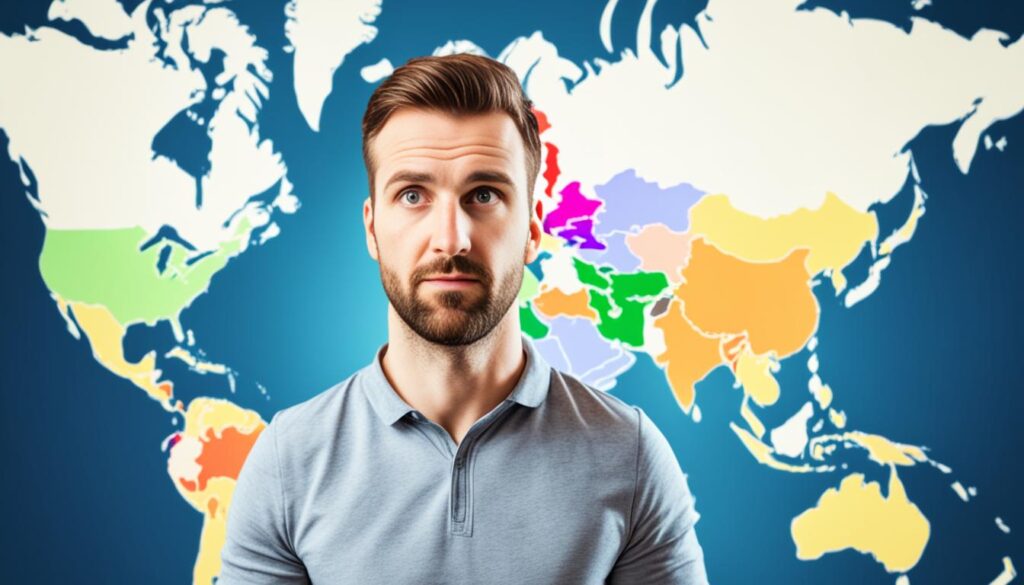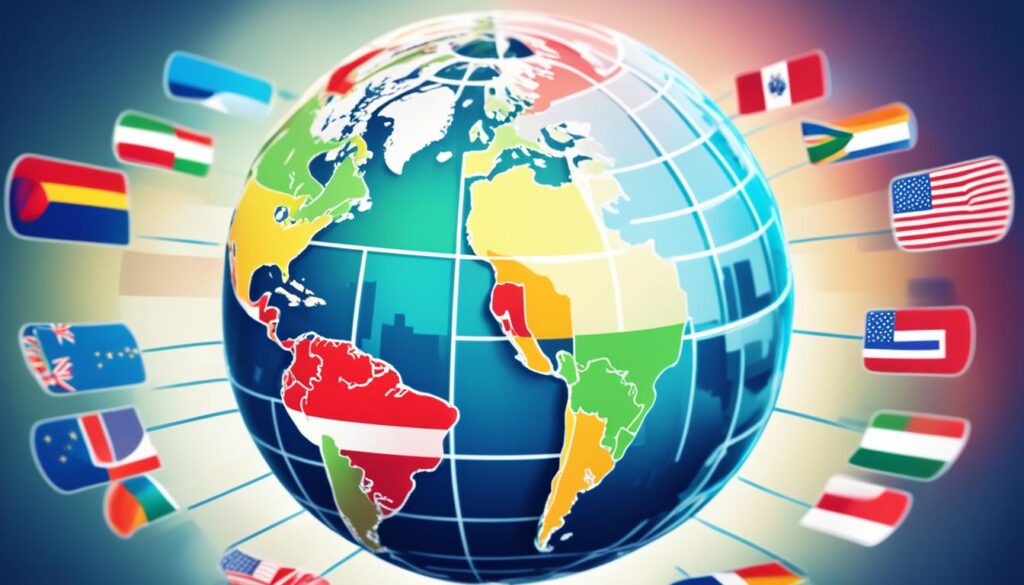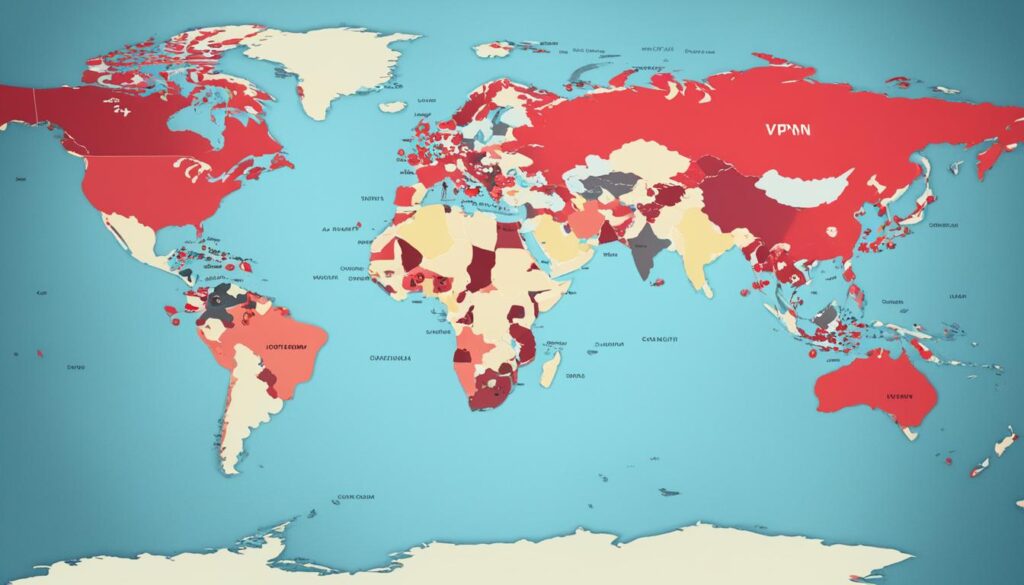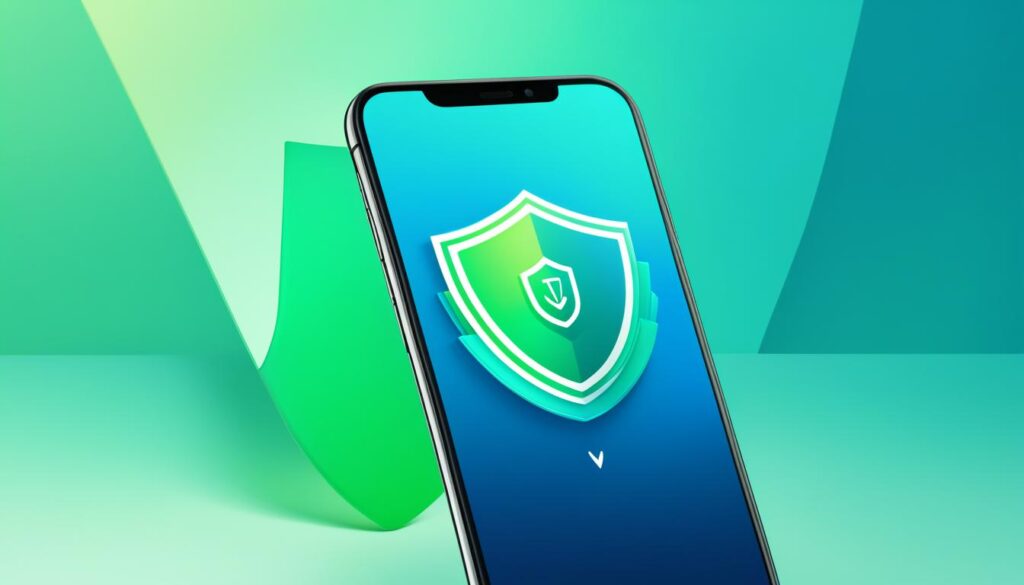Virtual Private Networks (VPNs) are now a global trend. They keep your online actions private by encrypting internet traffic and hiding your IP address. This makes them great for accessing blocked content and staying private. But, their use is not always welcomed. Some places have made VPNs illegal because they worry about keeping the internet safe and stopping illicit activities. This article looks at the rules about using VPNs in different countries.
Key Takeaways
- VPNs are widely used for improving online privacy and security, as well as bypassing geographic restrictions on content.
- While VPNs are legal in most countries, some governments have restricted or banned their use due to concerns over censorship and national security.
- The legality of VPNs varies greatly around the world, with some countries imposing harsh penalties for their unauthorized use.
- VPN providers have developed techniques to help users bypass restrictions in countries with tight controls on internet access.
- The future outlook on the legality of VPNs remains uncertain, as governments continue to grapple with balancing privacy and security concerns.
Introduction
A VPN, or Virtual Private Network, creates a safe pathway between your device and the internet. It does this through a VPN server, which hides your IP address. Also, it protects your internet actions by making them unreadable to outsiders.
What is a VPN?
A VPN is like a secret tunnel to the internet. It changes the path your data takes, wrapping it in a secure layer. This not only hides where you’re from but also lets you unlock content that might be blocked in your area.
Benefits of Using a VPN
VPNs have several good things they can do for you. These include keeping your internet life private and safer from snoops. They also let you watch shows or use websites that might be off-limits where you are.
- Improved online privacy and security: VPNs encrypt internet traffic, making it difficult for third parties to access user data or monitor online activities.
- Access to geo-restricted content: VPNs can be used to bypass geographic restrictions and access content that may be blocked in certain regions.
- Protection on public Wi-Fi: VPNs can help protect users from hackers and other threats when using public Wi-Fi networks.
- Increased anonymity: VPNs can mask a user’s IP address, making it more difficult to track their online activities.
Concerns Surrounding VPN Usage
However, not everyone is okay with VPNs. Some countries worry they might lose control over how they watch people online. This concern has led to some places limited or banned VPNs. Also, there’s the worry that VPNs could help with doing illegal stuff online, like stealing movies or doing cyber-attacks.
Countries Where VPNs are Legal
Today, I’ll explore where VPNs are seen as tools for privacy and safety. We’ll kick off in the United States, famous for valuing internet freedom.
United States
The United States allows VPN use. It cherishes freedom of speech and internet access. So, folks there can normally use VPNs as they wish. However, using them for illegal acts isn’t okay.
United Kingdom
Jumping over to the United Kingdom, VPN legality is also clear. It respects the right to privacy and freedom online. Yet, the government might block some content. But, they won’t stop people from using VPNs.
Canada
In Canada, VPN use is fine too. Here, protecting freedom of speech and privacy is key. The government hasn’t limited VPN usage. Still, some telecom companies want to change that by possibly blocking VPNs.
Countries with VPN Restrictions
Many people around the world use virtual private networks (VPNs) nowadays. Yet, some nations are more careful about how they use them. We will look at the rules around VPNs in three countries that closely monitor internet activities.
China
China places heavy restrictions on VPN use. The government uses the “Great Firewall of China” to control online access. This firewall blocks many websites and services from other countries.
While it’s legal to use VPNs in China, they must follow strict rules. For a VPN to operate, it must get government approval and store user details. They should also share this data if asked by the authorities. Due to these strict rules, only a few VPN services are available in China.
Russia
Russia is also strict about VPNs. In 2017, the government there made laws for VPNs to register. They must also follow internet rules that the government sets. This includes banning access to websites not approved by the government.
Many global VPN providers decided to leave Russia. They did not want to follow these new laws that conflict with what a VPN is meant for.
Turkey
Turkey has its own rules for VPN use. The government in Turkey is known for blocking websites and social media. Although VPNs are not banned, the government can restrict their usage.
In Turkey, VPN providers face challenges. They either have to leave the market or agree to certain government terms. This makes it hard for users in Turkey to find a VPN that works freely.
VPN Legality
VPNs are legal in many countries and are considered a good way to protect your online privacy and security. But, in places with strict internet rules or governments, they might be banned. This is usually because of fears about national security and stopping illegal online activities.
Most countries, though, do let people use VPNs. But a few places have put limits on them or banned them. They worry about things like government censorship and national security. The rules for VPNs vary, from making companies follow certain rules to not letting people use them at all.
Finding out where VPNs are okay or not can be tricky. As more people use VPNs, the laws about them change. Some places might start allowing more use, while others might get stricter about what people can do online.
Countries Where VPNs are Illegal
In many places around the globe, it’s fine to use VPNs. But some countries take a different stance. They ban VPN use. We will look at these countries. We’ll also see what might happen if you use a VPN in these places.
North Korea
North Korea tightly controls the internet. It censors what people can see online. Here, VPNs are banned. Using one is breaking the law. The government watches what people do online closely. If you’re caught, you could be fined or sent to jail.
Belarus
In Belarus, using a VPN is also against the law. Since 2015, the government has banned any tech that hides internet use. It includes VPNs and Tor. They monitor and block online activities. If you use a VPN and get caught, you may get fined or face legal trouble.
Turkmenistan
Turkmenistan is known for strict internet control. Here, the government bans VPNs. It watches out for anyone trying to get around their rules. If caught using a VPN, you could be fined or imprisoned.
Legal Consequences of Using VPNs Illegally
In places where VPNs are not allowed, using them can have serious outcomes. This includes big fines and even going to jail. Knowing the rules and following them is really important.
Fines
Breaking VPN rules can lead to high fines. In the United Arab Emirates, using a VPN for the wrong reasons costs at least $136,129. Oman charges fines of $1,300 or more for this.
Imprisonment
Some places are very strict and might put you in jail for using a VPN illegally. North Korea sees it as a crime, with punishment like imprisonment. Iraq also bans VPNs and punishes users with jail time.

Reasons for VPN Restrictions
The use of VPNs has grown a lot lately. Because of this, many governments worry. They are mainly concerned about government censorship and keeping their countries safe.
Government Censorship
Some governments want to control information tightly. They see free access to the internet as a risk. It lets people see what the government may not want them to.
They limit VPNs so it’s harder for people to see banned info. This helps them keep control over what their citizens know.
National Security Concerns
Governments also worry about the bad things people can do using VPNs. They say VPNs help criminals work in secret, making threats to security.
So, they restrict VPNs to keep their countries and people safe from possible dangers.
Bypassing VPN Restrictions
Many countries now limit VPN use. But, users can still reach the open internet safely and without showing who they are. They achieve this through obfuscated servers and by choosing reliable VPN companies.
Obfuscated Servers
For places with tough VPN restrictions, leading VPN services have found a way to look like normal internet use. This method, called obfuscation, changes VPN traffic to seem like regular browsing. This makes it hard for governments to stop or spot VPNs. With obfuscated servers, users keep their privacy and security, even in such places.
Trusted VPN Providers
Selecting a VPN service known for safeguarding privacy and security is another successful tactic. Names like NordVPN and Surfshark stand out here. They’ve crafted special tools and methods for users in restricted areas to browse the internet safely, without being noticed. They fight against censorship and surveillance, making it easier for people to enjoy their digital rights.

Future Outlook on VPN Legality
Use of VPNs is growing, making the world see them differently. Their legal situation could change soon. Some places might ease up, seeing VPNs help keep online life private and safe. But others might get tougher, wanting more control over their citizens’ online actions.
It’s possible more countries will agree with nations like the United States, the United Kingdom, and Canada. In these places, using a VPN is not much of a problem. They see VPNs as tools for online privacy. People are learning how vital digital privacy is. And, they see VPNs as a way to stand up to online limits. This, in turn, might push governments to be cooler about VPNs, as long as they’re not a part of shady dealings.
Yet, not all places might get friendlier on VPNs. Some countries, such as China, Russia, and Turkey, might make things harder. They’ve already tried to control VPNs. They think VPNs get in the way of their control over the internet and national safety.
So, what happens to VPN legality will be a mix of many things. It’ll depend on the global rights to the web. It’s about finding a right balance between private and national interests. And, how we see tech’s place in a fast-changing world. As we move forward, it’s key to keep up with the news and push for our online rights. We also need to remember the legal risks of using VPNs in different places.
Conclusion
The world’s thoughts on VPNs vary a lot. Most countries are okay with VPNs. But, some have banned them to stop illegal stuff and for national safety. As more people use VPNs, the rules may change in different places. Some might ease up, while others get stricter.
Even though some places ban VPNs, there are ways around it. Choosing the right VPN service can help. But, always check your local laws before using a VPN.
Keeping up with online privacy and security is tough. Remembering the rules about VPNs is key. This way, we choose what’s best for us and add to the conversation about VPNs in our modern world.



